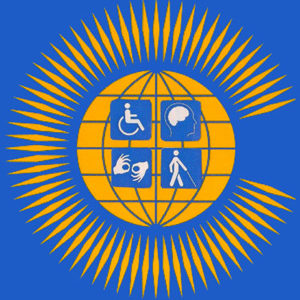CDPF Support the Amman-Berlin Declaration on Global Disability Inclusion. To make this declaration more than fine words, several things need to occur in the Disability World.
Firstly, recent cutbacks in international aid from USAID following the election of President Trump has led to widespread cutbacks to vital disability programmes in 134 countries. Overseas aid cutbacks are happening in Germany, France, United Kingdom, Netherlands, Belgium and a range of other doner countries. Trump’s approach is based on breaking with more than 70 years of a rules based and equity approach and is inimical to a disability rights approach.
All countries that support the sentiments of the Amman-Berlin Declaration must increasingly pool their efforts and funding to support its achievement.
Secondly, the representative organisations of disabled people (DPOs) or Organisations of Persons with Disabilities (OPDs) need to be empowered by all partners to take the lead in implementing the UNCRPD. Since the UNCRPD was adopted, we have witnessed an increasing amount of influence and funding being given to Non-Governmental Organisations that are neither run and controlled by disabled people, nor do they represent our varied live experiences. They often pay lip service to our involvement, but we would like them to develop these good practices:-
a) Accept the leadership and thinking of Disabled People’s Organisations (DPOs/OPDs) ‘Nothing About Us Without Us’ and not ‘steal our clothes’.
b) Do everything they can to empower and build the capacity of DPOs/OPDs.
c) Reject the charity/ medical model for social/human rights model of disability.
d) Put their organisational, financial and training resources at the disposal of disabled people and DPOs/OPDs.
e) If the organisation provides welfare services and treatment, do they still empower disabled people they work with?
The Commonwealth Disabled People’s Forum (CDPF) is an organisation of over 100 Disabled People’s Organisations (DPOs) from 50 of the 56 Commonwealth countries. The Commonwealth makes up 2/5s of the world’s peoples which means at 16%, 430 million disabled people.
Thirdly, how we organise is important. CDPF use Disabled People and not People with Disabilities, as we are of the view that disability is a cultural and social process that oppresses people with impairments. It is the barriers that need to be removed and it is these attitudinal, organisational and environmental barriers that oppress us. Therefore, we call ourselves disabled people in solidarity with each other, regardless of our wide range of impairments. Impairment is part of the human condition.
However OPDs/DPOs respond to the above in achieving disability equality, we are best served by having cross impairment organisations led and controlled by disabled people. We must be experts on each other’s impairments and access needs. This is not just an argument about language. It is also how we conceive of the task and the actions we need to take to gain full disability equality and implementation of the UNCRPD. The key message disabled people need to internalise in their millions is that the discrimination and prejudice we face is not our fault and use this empowerment to self-organise for our rights.
States and other partners need to promote this view to their wider populations as Article 8 requires. To achieve the above, we need to invest in much more digital, face to face training to build our Movement and we need to include this in school curriculum for all learners.
Fourthly, disabled girls and women face the extra barriers of Sexism and Harassment. Two thirds of CDPF Executive are women and form our Women’s Forum. They have carried out online research, surveys and meetings to put forward strong policy positions at UN Committee on Status of Women and Commonwealth Women Affairs Ministers Meeting. The Women’s Movement in general does not include disabled women. https://commonwealthdpf.org/equality-areas/ and states ignore the additional barriers women and girls face.
Fifthly, Inclusive Education. Despite radical changes in the international Human Rights framework, from exclusion and segregation towards Inclusive Education [UNCRPD Article 24 and SDG 4], most countries have not seriously followed suit. Exclusion (not being in school), segregation (in separate schools and institutions) or poor integration (disabled students attend, but little or no accommodations are made) remain persistently the norm. Everyone agrees that a good education is a firm foundation for a successful life and a strong national economy. So why do we continue to effectively exclude so many disabled young people from accessing equitable quality education and denying our countries their potential? Let us redouble our global efforts on this key issue.
This Global Disability Summit meets at a crucial point in modern history. Will States and Civil Society renege on their commitments and human rights responsibilities or resist in a coordinated and effective way the growing number of international ‘bullies on the block?’.
